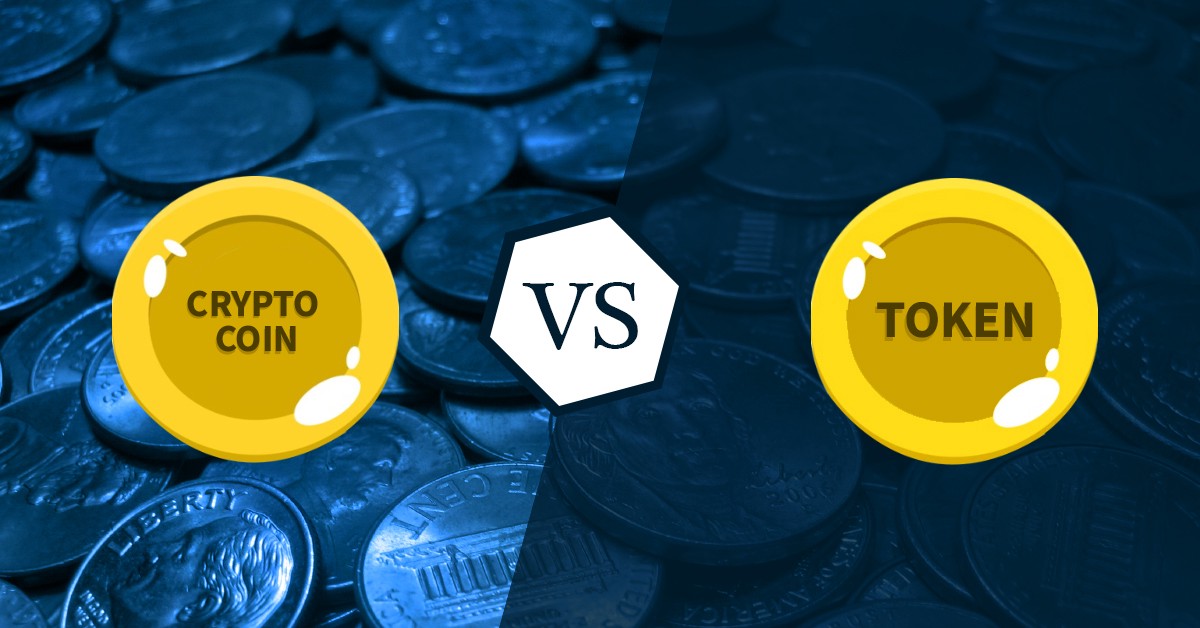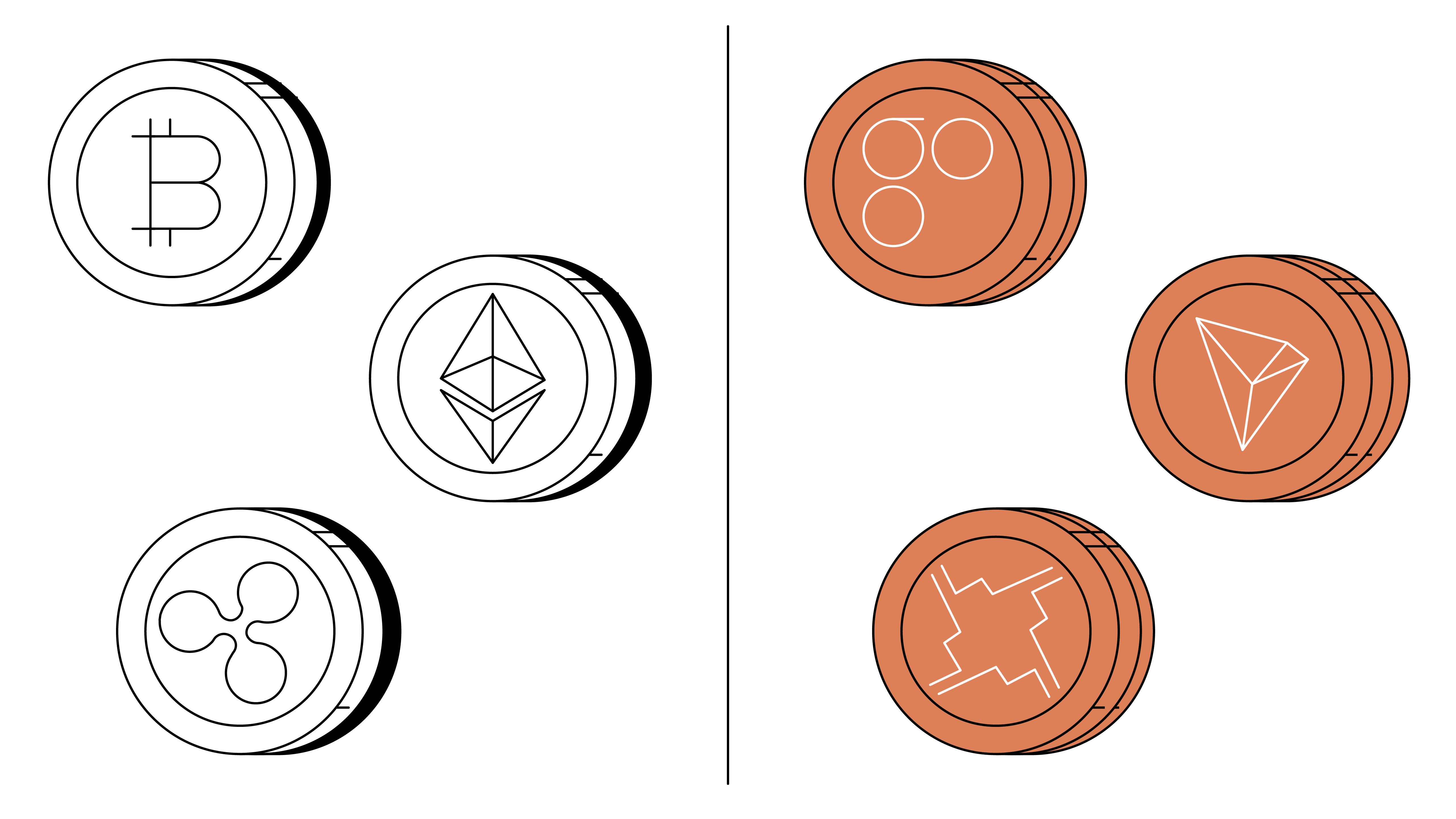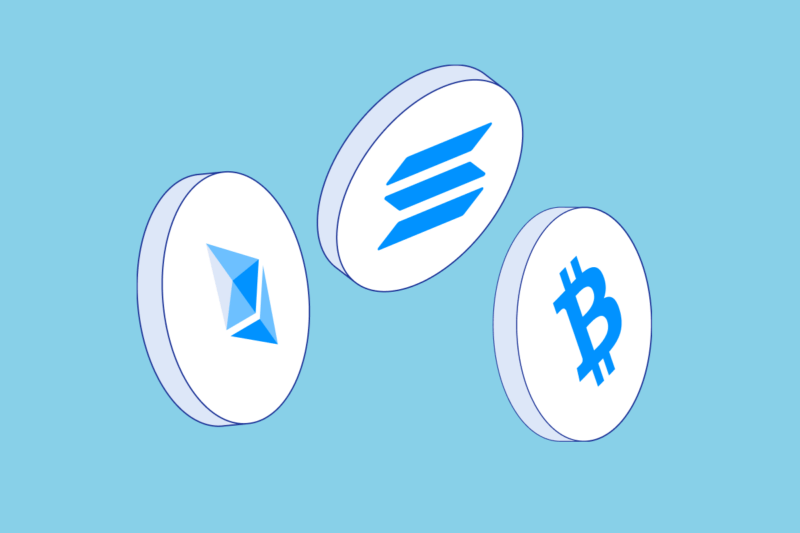
If you’ve been following the cryptocurrency markets, you may have noticed that the terms cryptocurrency and token are being used interchangeably. Although they are similar in many ways, these two terms aren’t exactly interchangeable, as they represent different properties that do not necessarily need to be present within one asset. So what is the difference between the two? What makes an asset a cryptocurrency or token? Let’s take a look at the differences between tokens and cryptocurrencies so that you can better understand how these assets fit into your digital investment portfolio.
What is tokenization?

In the context of cryptocurrency, tokenization refers to the process of creating a digital token that can be used to represent an asset or utility. This can be done on a blockchain platform, which provides a decentralized and secure way to create and manage tokens. There are many benefits to using tokens, including the ability to fractionalize ownership of assets, create new economic models, and enable trustless interactions. However, there are also some risks associated with tokenization, such as the potential for fraud or theft. The same principles of security apply to cryptocurrencies as they do any other type of currency. For example, it’s important not to share your private key with anyone else; anyone with access to your private key can steal your cryptocurrency. It’s also important not to click on links from suspicious sources and always double-check before sending any funds anywhere. The most popular method of storing your coins is in a wallet (software or hardware). To generate a wallet, you need to have either a mnemonic phrase (a long string of words) or an exchange account ID – this should never be shared with anyone because both act as the key to accessing your funds. Cryptocurrency transactions are irreversible so it’s important to carefully enter all relevant information when signing off on one.
What does it mean to hold crypto assets?

When you hold crypto assets, you are not holding a physical or digital token that can be used to purchase goods or services. Instead, you are holding a piece of code that represents an ownership stake in a decentralized network. This code is called a crypto asset because it uses cryptography to secure its transactions. Crypto assets are often compared to tokens, but there are important differences between the two.
Tokens are generally issued by a central authority, such as a company or government, and can be used to purchase goods or services from the issuer. Cryptocurrencies, on the other hand, are decentralized and not subject to the control of any one entity. In addition, crypto assets have intrinsic value because they enable their holders to participate in and help secure the network. The fundamental difference between crypto assets and tokens boils down to decentralization. With a token, the holder relinquishes all rights when they trade with someone else who is also using the same centralized system (or in this case, centralized company). With a cryptocurrency, there is no need for intermediaries because every user has access to all of the data on their own; this eliminates any single point of failure and helps create a self-sustaining economy. Decentralized networks allow anyone to use them without requiring permission, thus providing true independence. They don’t depend on a specific technology vendor or operator and cannot be stopped unless their protocol ceases to function entirely. With crypto assets, each user retains complete control over their funds at all times. For these reasons, it’s hard to compare crypto assets with tokens.
The difference between tokens and crypto assets

A token is a digital asset that is issued on a blockchain. It represents something of value, but it is not backed by anything. A crypto asset, on the other hand, is a digital asset that is backed by something of value. Bitcoin, for example, is backed by the fact that it can be used to purchase goods and services. Ethereum is backed by the fact that it can be used to create smart contracts. You could also say Litecoin is backed by the ability to buy and sell items from merchants that accept it as payment. You get the idea! Tokens are not backed by anything, while crypto assets are always backed by something. With tokens you’re hoping that somebody else values them enough to give you money in exchange for them – if nobody does then they’re worthless. With crypto assets you know there’s some sort of demand or use for them because they have a physical or virtual purpose outside of being just an investment opportunity.
How are these assets valued?

Investors can take positions by buying and selling currencies based on what they think will happen with its price. For example, if you think bitcoin prices will go up you would buy bitcoins while if you think it’s going down you would sell your bitcoins. In order for an asset to be considered a security under U.S. law, it must meet all three requirements:
1) It is an investment of money
2) There is an expectation of profits from the investment
3) The funds are invested in a combined venture
Crypto does not meet these requirements because there is no clear way for investors to make money off of crypto investments other than short term speculation on when and where the price may change (ie: HODLing). Tokens do meet these requirements because there are clear ways for investors to make money off as this allows them to buy tokens from one place and sell them elsewhere at different prices. For example, someone might buy some Ethereum now at $800 per token with the intention of holding onto it until the price goes up to $1,000. If the person who bought the Ethereum then decides that they want to cash out before it reaches $1,000 then they could sell their tokens back into fiat currency or exchange their tokens for Bitcoin, Litecoin, etc.
Future use-cases of these asset classes.

Crypto assets, digital tokens that use cryptography to secure transactions and control creation of new units, are controlled not by a government or financial institution, but decentralized, a characteristic that means no entity has centralized control over them. Bitcoin, the first cryptocurrency and still one of the most widely used, was created in 2009. Cryptocurrencies are typically traded on decentralized exchanges and can also be used to purchase goods and services.